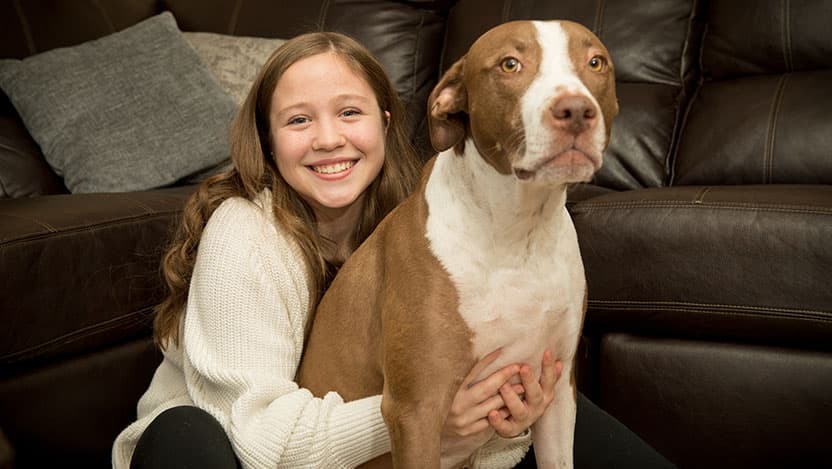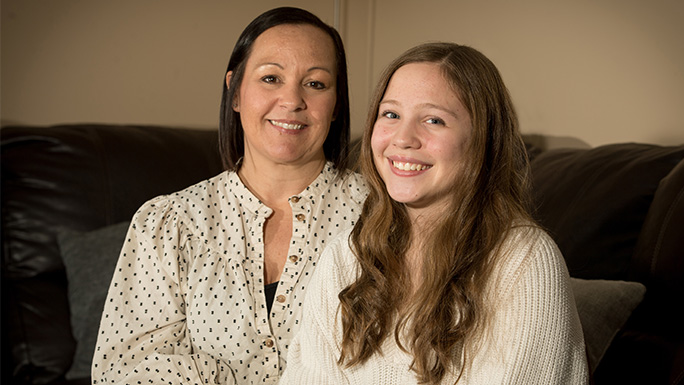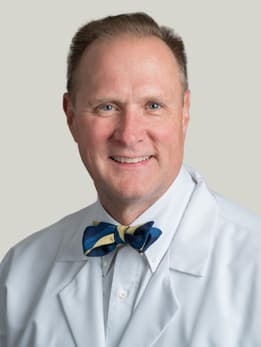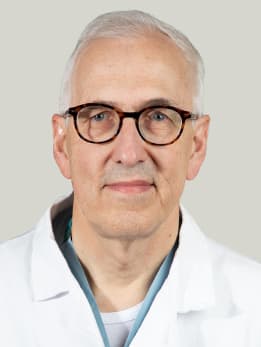Teen is seizure-free after microsurgery to repair cerebral cavernous malformations (CCMs)

There are your average teenagers, and then there’s 15-year-old Bailey Harding, who had to grow up more quickly than most kids.
“A lot of people say I’m more mature than others for my age,” said Harding.
That’s because the teen has had to deal with a serious medical condition: cerebral cavernous malformations (CCMs), which are small, raspberry-like clusters of dilated blood vessels in the brain. If a CCM bleeds, depending on its size and location, it can cause seizures, headaches and nausea, among other symptoms.
Harding found out she had CCMs when she was 7 years old. Her mother Tracey, who learned later that she and her other daughter share the genetic version of this disorder, recalls everything about that day: the family driving from Aurora to her brother’s house for dinner; Bailey staring out the car window in the back seat, trance-like, despite having an iPad in front of her.
At first, Bailey answered when her mom asked if she were OK. A minute later, however, the girl didn’t react when Tracey asked again. Then, she vomited.
“She threw up and she did not respond; it was almost zombie-like,” said Tracey. “It was the worst thing in the world."
Bailey was taken by ambulance to a local hospital, where a CT scan showed blood in her brain. She was transferred to Advocate Children’s Hospital, where neurologist Chicagoland Children’s Health Alliance (CCHA), a partnership in which pediatric doctors from Advocate Children’s Hospital, University of Chicago Medicine Comer Children’s Hospital and NorthShore University HealthSystem collaborate and provide multidisciplinary care in the neuroscience, general surgery, cardiovascular care, cancer care and gastrointestinal specialties.
Shah reached out to UChicago Medicine pediatric neurologist Douglas Nordli Jr., MD, co-director of the Comprehensive Epilepsy Center and a friend of many years. Nordli met with Bailey and – after reviewing an EEG and MRI – agreed that surgery was necessary.
"I think it really put the family at ease to know that Dr. Shah and I are on close terms," said Nordli. "It's an example of the ideal way we hope we can work together with the CCHA — to provide that level of additional care where needed, then ultimately have the child return back to their physician so that it's less disruptive for their life."

The case was presented and discussed at the weekly epilepsy surgery conference with pediatric neurosurgeon Peter Warnke, MD, Director of Stereotactic and Functional Neurosurgery at UChicago Medicine. Two treatment options existed: a standard, open microsurgery to remove the lesion or an MR-guided interstitial laser ablation, using a laser threaded through a catheter into the brain to destroy the tissue.
Bailey felt more comfortable with the idea of having the lesion removed instead of destroyed. She chose traditional open surgery.
During the procedure, Warnke made an opening in Bailey’s skull and used electrodes placed over her temporal lobe to confirm the location of the seizure-onset zone and its relation to the CCM. Then, with the help of a powerful surgical microscope, he delicately removed the CCM in a roughly inch-wide clump of tissue.
“Based on our large experience with epilepsy surgery and with proper navigation and expert electrophysiology provided by our pediatric neurology team, these surgeries have become both very standardized and very safe,” said Warnke.
Bailey spent four days in the hospital recovering, then headed home. Eventually, doctors hope she'll be weaned off of her seizure medications. Because she has other CCMs in her brain, she'll continue to be monitored for changes in her condition and take precautions like avoiding contact sports.
"I haven't had any partial seizures or big seizures since the surgery," she said. "So far, it's worked."

Douglas R. Nordli, Jr., MD
Douglas R. Nordli, Jr., MD, is a child neurologist specializing in early-onset epilepsy and a co-director of UChicago Medicine’s Comprehensive Epilepsy Center.
Learn more about Dr. Nordli
Peter Warnke, MD
Internationally renowned neurosurgeon Peter Warnke, MD, has performed more than 5,000 stereotactic surgeries and more than 2,000 brain tumor surgeries. Dr. Warnke provides neurosurgical care for the treatment of adults and children with movement disorders, epilepsy and brain tumors.
Learn more about Dr. Warnke
Pediatric Neurology and Neurosurgery
Our pediatric neurologists and neurosurgeons work closely together to coordinate effective, comprehensive and innovative treatment plans for children with neurological illnesses. As leaders in pediatric neuroscience research, we optimize care for the entire spectrum of pediatric neurological disease.
Learn more about pediatric neurology